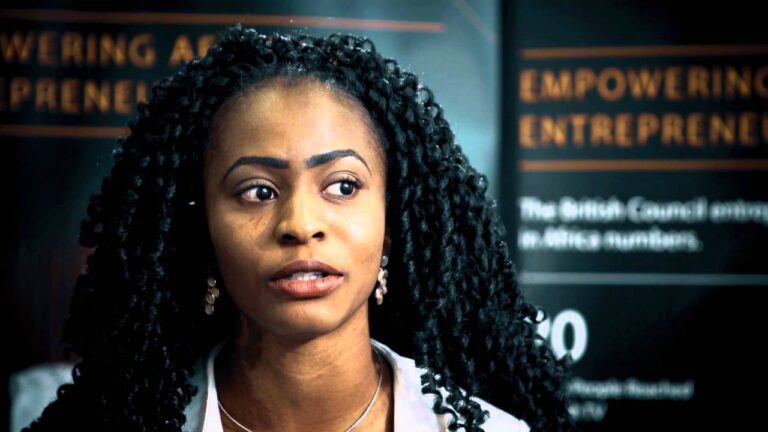Ten years ago, Ovio Keturah returned to Nigeria with a bold vision— to build a business that would transform how small enterprises across Africa operate. Today, as the founder and CEO of Dukka, a leading tech company, Keturah reflects on a decade of resilience, reinvention, and valuable lessons in entrepreneurship.
Keturah’s mission with Dukka is nothing short of transformative: digitizing millions of African small businesses, integrating them into the formal economy, and unlocking access to growth, credit, and long-term wealth. But for Keturah, the goal goes beyond business. She is equally passionate about nurturing the next generation of Nigerian entrepreneurs through mentorship, investments, and creating ecosystems that simplify their journey.
When asked why she chose Lagos over the United States to chase her entrepreneurial dreams, Keturah gave a candid answer: “Lagos chose me as much as I chose it. I came back on a gut feeling—a sense that Nigeria’s opportunity was raw, vast, and untapped. I gave myself two years to figure it out. By the end of those two years, I realized the chaos was actually a catalyst. Lagos had the energy, the hunger, the gaps. If I could survive here, I could thrive anywhere.”
Keturah’s entrepreneurial path wasn’t without its setbacks. Reflecting on her first two failed ventures, she highlighted a crucial lesson: timing is everything.
“Timing matters more than brilliance. Infrastructure—or the lack of it—can make or break even the best ideas. Customer realities on the ground often differ from theory or what foreign markets suggest. Distribution wins over product. Perfect technology doesn’t matter if it doesn’t align with how people transact, especially in Nigeria, where hybrid offline-online realities prevail. Cash flow is oxygen, and you must assume nothing works—then innovate around it,” she explained.
Lagos, Keturah shared, taught her lessons no textbook could offer. “Lagos doesn’t care about your plans—it demands agility. Decisions are made fast; waiting for perfection means failure. Deals fall apart overnight. Policies shift without warning. Lagos taught me that resilience isn’t a nice-to-have—it’s a currency.”
Keturah noted that limitations in Lagos aren’t excuses but triggers for innovation. In an environment where trust is priceless, entrepreneurs must build networks before they need them.
Dukka was founded to address the often-neglected challenges faced by African small businesses, such as smart recordkeeping, cash flow management, and access to digital payments—without needing full online integration.
For Keturah, the company’s success lies in staying focused. “We build for reality, not for hype. We co-create with our customers, designing tools that serve the real economy, not just the headlines.”
She is firm in her belief that building a tech business in Nigeria cannot be based on foreign models. “You can’t simply copy and paste. In Nigeria, you’re fighting structural battles that places like Silicon Valley or Asia often take for granted—like stable power, reliable internet, regulatory predictability, and digital literacy. Distribution works differently here. Physical touchpoints matter more than purely digital strategies. Done right, physical channels can even cost less,” Keturah said.
For aspiring entrepreneurs, Keturah warns against a few common myths: “Passion alone isn’t enough. It must be paired with strategy, resilience, and a clear understanding of market realities. Nigeria’s large population doesn’t automatically mean a customer base—purchasing power is what truly matters. Tech is a great tool, but it won’t solve everything instantly. Execution and adaptation take time.”
She also cautioned against seeking external validation: “The most impactful innovations come from understanding local needs. Success isn’t about glamour; it’s about endurance—navigating obstacles, seizing opportunities, and persisting through setbacks to create lasting change.”
Advice for Entrepreneurs
Keturah also addressed two key misconceptions about entrepreneurship in Nigeria. “Dukka’s four-year journey has been anything but easy. We’ve faced six near-death moments—from banking partner collapses to regulatory bottlenecks and rebuilding our engineering team. In Africa, failure is often systemic rather than personal, and separating the two is essential for survival,” she said.
Additionally, Keturah highlighted misconceptions about venture capital. “Many people think securing investment is the ultimate goal, but building a real business with paying customers is far more important. Revenue is the best investor—it provides stability and independence that funding alone can’t guarantee.”

